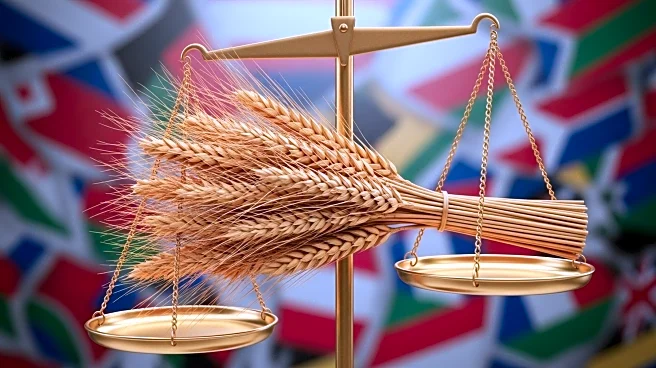What is the story about?
What's Happening?
The World Trade Organization is witnessing new disputes as higher U.S. tariffs impact global farm trade. Brazil has requested consultations with the U.S., following similar actions by Canada and China. The U.S. has imposed an additional 10 percent duty on imports from all trading partners, affecting about 70 products, including key agricultural goods like soybeans, rice, fruits, and vegetables. These tariffs could lead to increased input costs for farm machinery and chemicals, further complicating production. Analysts warn that while some U.S. crops may be shielded, the risk of retaliation and lost markets remains high.
Why It's Important?
The imposition of higher tariffs by the U.S. has significant implications for the agricultural sector, which relies heavily on exports. Retaliatory measures from affected countries could lead to reduced demand for U.S. agricultural products, impacting farmers' revenues and the broader supply chain. The increased costs for inputs like machinery and chemicals could further strain growers, potentially leading to higher prices for consumers. The disputes at the WTO highlight the delicate balance between trade policy and agricultural exports, emphasizing the need for strategic trade negotiations to protect U.S. interests.
What's Next?
The ongoing WTO disputes may lead to further consultations and negotiations between the U.S. and affected countries. The agricultural sector may need to explore alternative markets and diversify export strategies to mitigate the impact of tariffs. Policymakers could consider revising trade policies to address the challenges faced by farmers and ensure sustainable growth in the sector. The outcome of these disputes could influence future trade agreements and the global agricultural trade landscape.

















